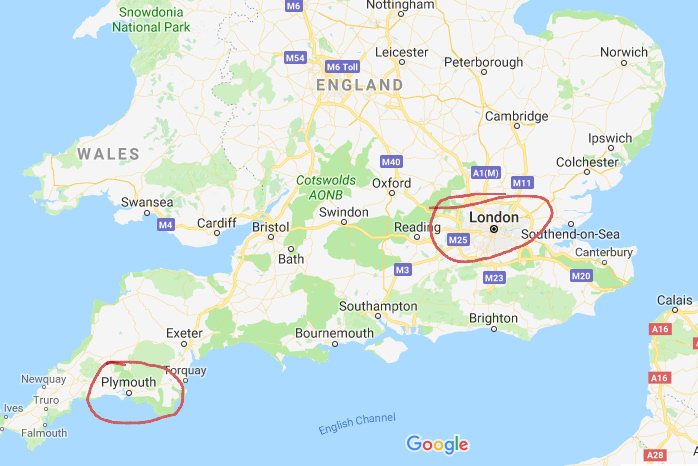While the UK was fighting the US in 1776 its troops were occupied there leaving Britain defeenseless. Spain and France sent out the largest flotilla yet to take Britain and were stopped by a tiny virus.
King Louis XVI, who decided to assist the Americans in their War
of Independence, did so in an effort to limit English power and protect
France’s interests in the New World. Louis himself was variolated in June
1774. The inoculation was mandated because his predecessor, Louis XV,
who had initially engaged the British in the French and Indian war, died
earlier of smallpox.
In June 1779, France formally declared war on England. France had,
for almost two years prior, been assisting the colonists in their fight
against Britain. France was joined in the war by her ally Spain, and
by August, 40,000 troops had been assembled to invade England, at a
time when much of Britain’s military might was on the other side of the
Atlantic ocean, fighting the Americans. As described in History of the French
Navy (22):
“The plan for the invasion of England was comparatively simple. Two
armies, each of 20,000, were to be assembled with their transports, one
at St. Malo, the other at Le Havre. D’Orvilliers was to take the main
French fleet from Brest, join the Spanish fleet, and the combined force
of over sixty of the line (ships), which would give them odds of three
to two over any force the English could put to sea, was to take command
of the Channel. The troop transports were then to unite north
of Cherbourg and be escorted to land the soldiers on the Isle of Wight
and round Portsmouth, destroying the English naval base in the Channel
preparatory to a march on London.”
The French and Spanish fleets united, and the combined armada of
sixty-six ships and fourteen frigates appeared off the coast of Plymouth,
“with the wind in their favor.” British Admiral Hardy and his thirty-eight
British ships were nowhere in sight. To the English on shore, “nothing
was certain except that the most powerful armada that ever walked
the waters had inserted itself between the British fleet and the British
arsenals and dockyards.” “Never perhaps has England been in more
serious danger of invasion than in July 1779.”
“Yet the French did not attack. It was for them the golden opportunity,
but they lay there for three days and made no effort. The reason
was that they had smallpox on board, and far from being in a condition
to fight, they were so weakened that it would have been impossible to
maneuver their ships. On August 16, their sick were at least equal to the
number of sound men. Many of their line-of-battle ships had from 50 to
60 percent of their crews [out of combat] and the dead were flung overboard.
On August 18, a wind increasing to a gale blew from the East and
the weakened French and Spanish fleets were blown a hundred miles into
the Atlantic.”"
Viruses, plagues and history, P 67.
What tremendous luck smallpox was aboard and incubated in time to make them sick when they got there.
"The French and Spanish fleets united, and the combined armada of
sixty-six ships and fourteen frigates appeared off the coast of Plymouth,"
"Thus, smallpox saved Britain but did not spare it from infection
(23). Nearly 2,500 deaths from the disease were recorded in London
during 1779, and another 3,500 two years later. During the last two
decades of the eighteenth century, smallpox killed over 36,000 persons
in London and an equal number in Glasgow, Scotland. This constituted
almost one of every ten deaths in London, and nearly a fifth of all the
deaths in Glasgow. The overwhelming majority of the victims were young
children, since nearly all surviving adults were immune. In English towns,
nine of every ten persons who died of smallpox were under the age of
five years."
Hey that sounds like Doctor Who where "many lives were sacrificed to save them all" - a recurring theme.
It is as yet unexplained why and how smallpox went from ships near Plymouth to London and Glasgow.



